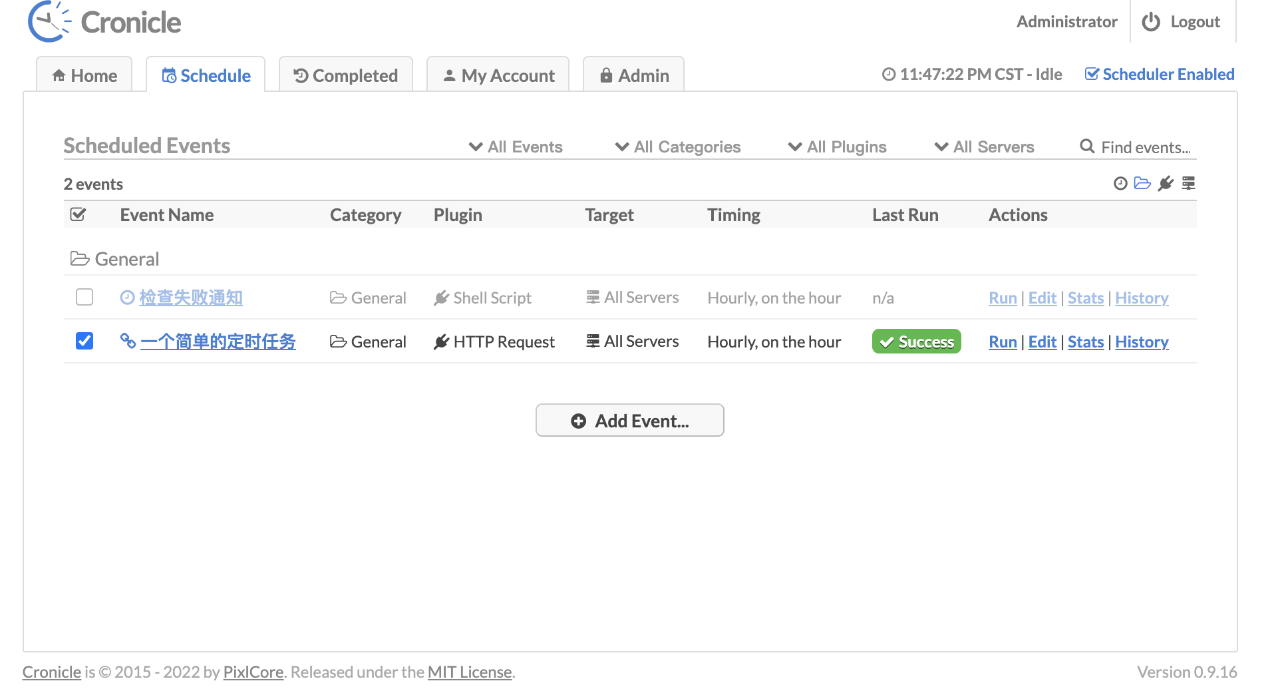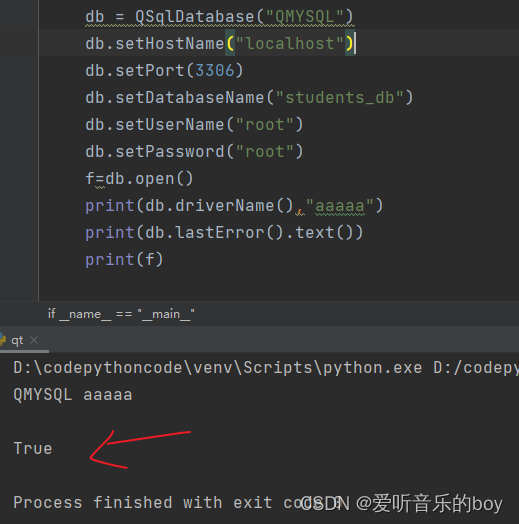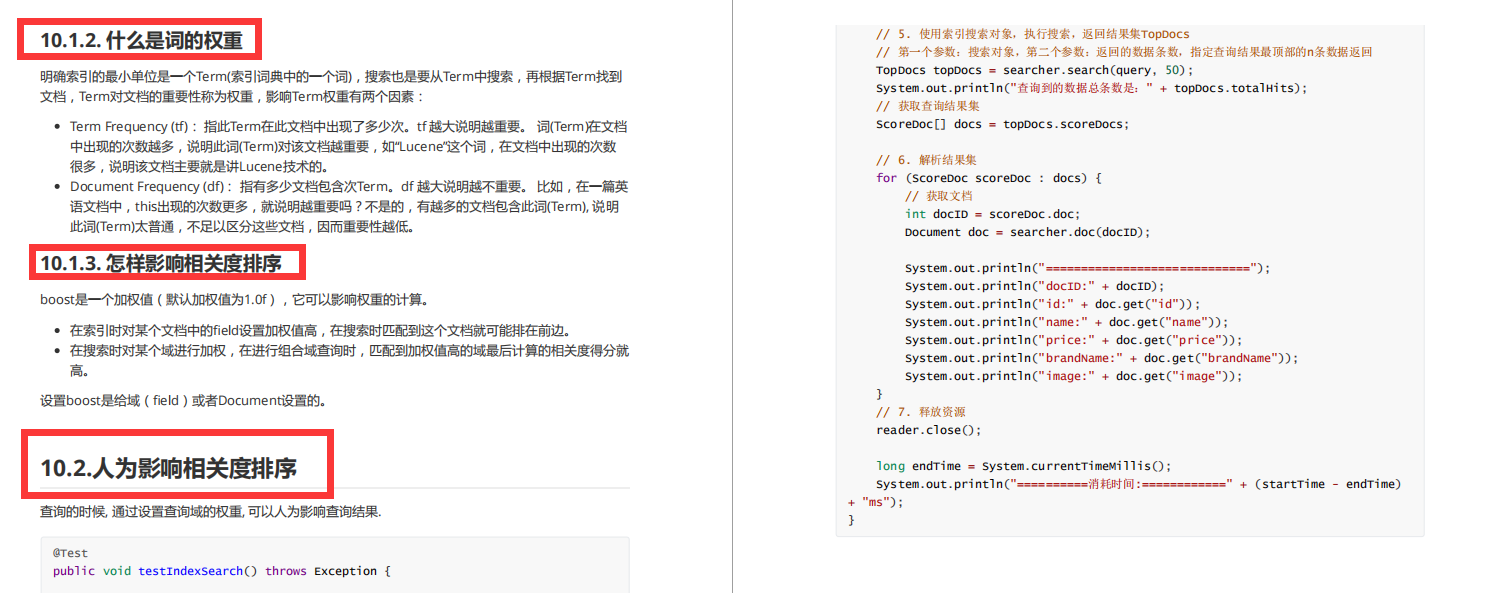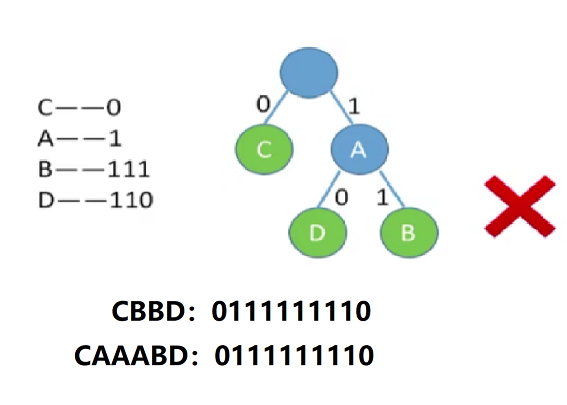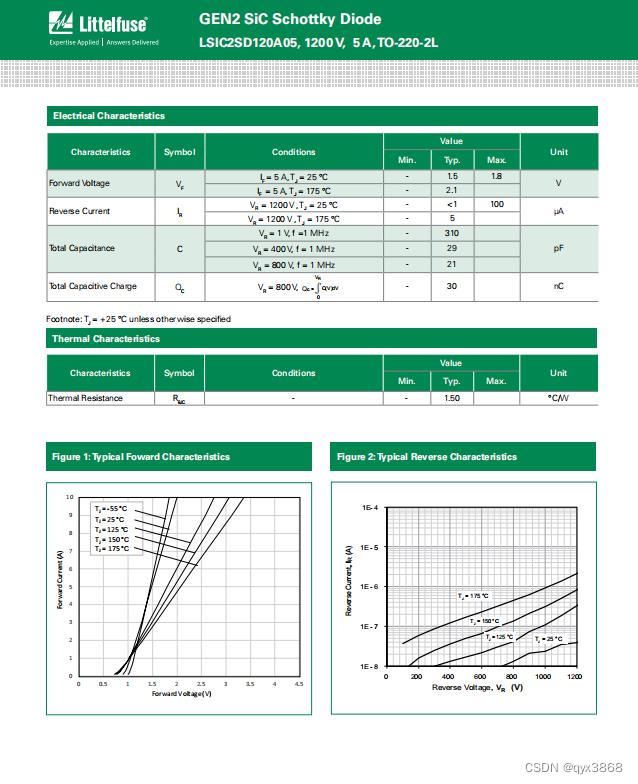在开发环境里面,开发者经常喜欢使用 console.log 进行日志打印,很好的提高了开发者的开发效率,但是这样容易产生新的问题,因为console的使用,影响内存的滥用,可能造成内存溢出。
分析内存上述的原因
传递给 console.log 的对象,影响了它的垃圾回收,导致内存居高不下。
验证实例
Memory.html
<!DOCTYPE html>
<html lang="en">
<head>
<meta charset="UTF-8" />
<meta http-equiv="X-UA-Compatible" content="IE=edge" />
<meta name="viewport" content="width=device-width, initial-scale=1.0" />
<title>Memory</title>
</head>
<body>
<input type="button" value="click" class="button" />
<br>
<br>
<label><input type="checkbox" class="checkbox" value="" />关闭日志打印<label>
<script>
class Memory {
constructor(){
this.init();
}
data = null;
init(){
this.data = new Array(100000).join('*');
console.log("Leaking an object: ", new Date(), this);
console.warn("Leaking an object: ", new Date(), this);
console.error("Leaking an object: ", new Date(), this);
}
destroy(){
this.data = null;
}
}
document.getElementsByClassName("button")[0].addEventListener('click', ()=>{
new Memory();
});
document.getElementsByClassName("checkbox")[0].addEventListener('click', (val)=>{
if(val.target.checked){
console.log = ()=>{}
console.warn = ()=>{}
console.error = ()=>{}
}else{
location.reload();
}
});
</script>
</body>
</html>
这里使用Chrome谷歌浏览器的开发者工具中的Performance来进行演示:
(实验两次,第一次实验默认不关闭日志打印,第二次实验关闭日志打印)
- 开始记录内存变化
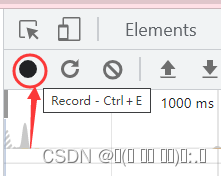
- 连续点击三次click,每次间隔一下
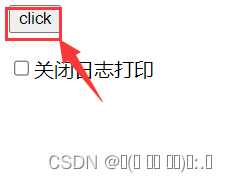
- 结束记录
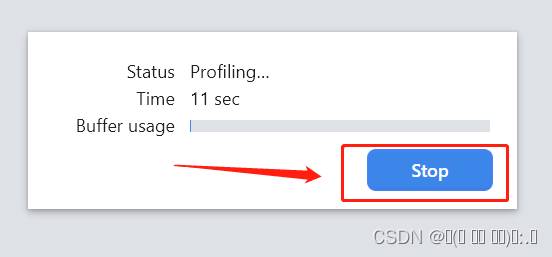
验证结果图
不关闭日志打印
三次创建对象,console打印日志,内存持续走高,无垃圾回收
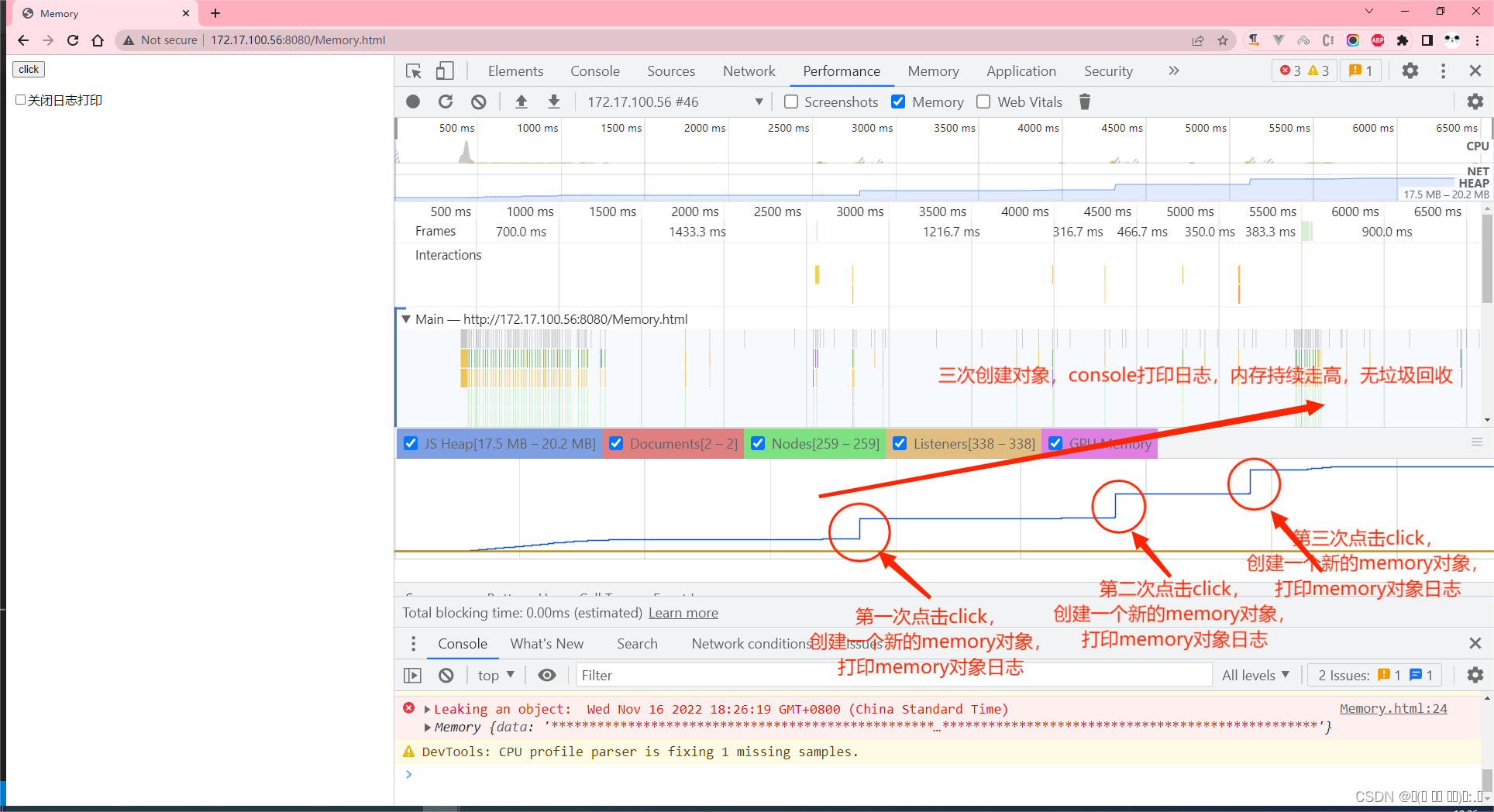
关闭日志打印
三次创建对象,无console打印日志,在第二次创建对象完毕的时候,内存下降,因此判断这个地方执行了垃圾回收
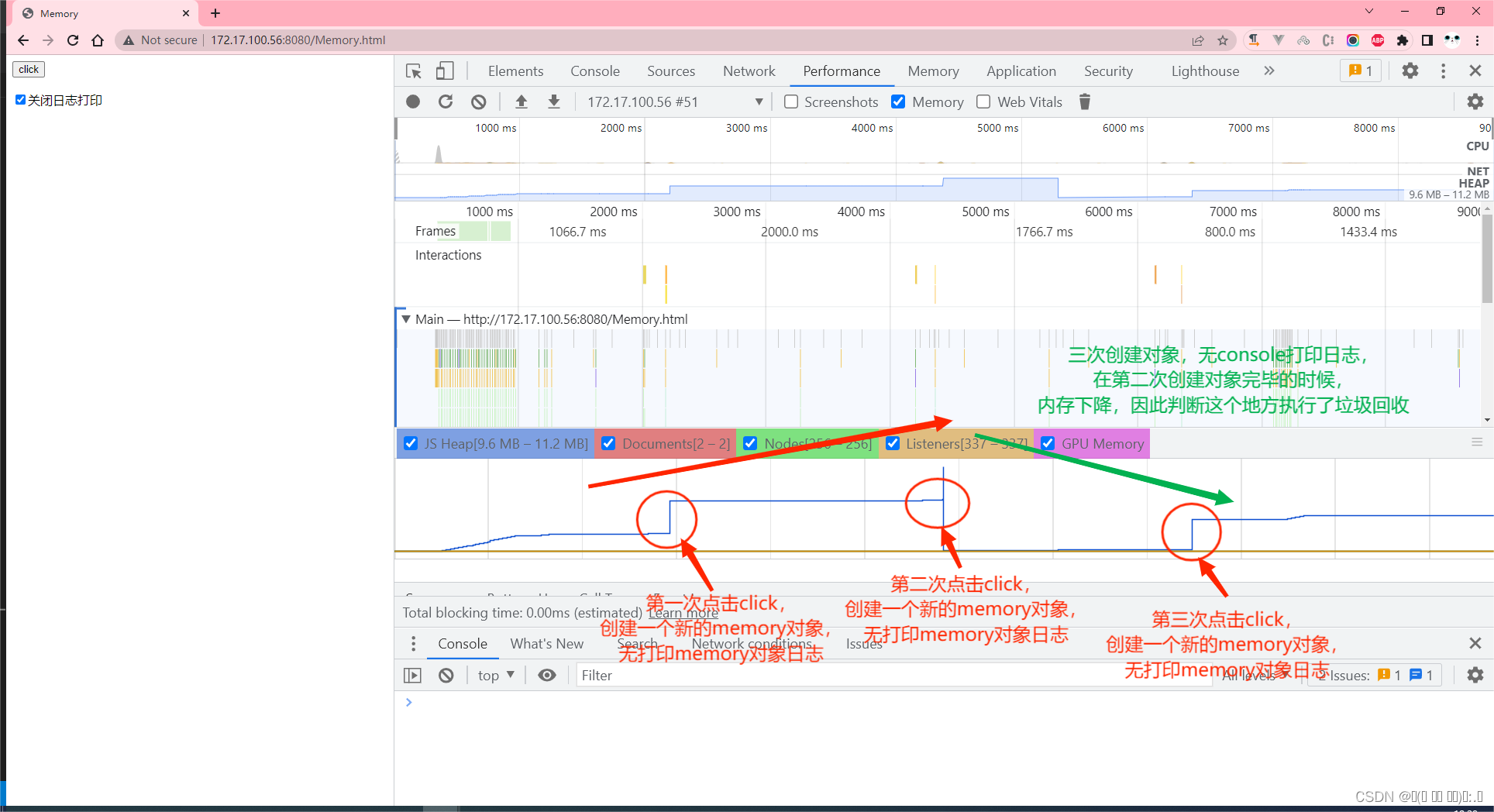
生产环境关闭日志打印核心代码
原理是用空方法覆盖console里面原来的方法
这里只覆盖了console对象里面的 log、warn、error 这三个常用的方法,一般开发打印日志的时候,只会使用这些方法
console.log = ()=>{}
console.warn = ()=>{}
console.error = ()=>{}

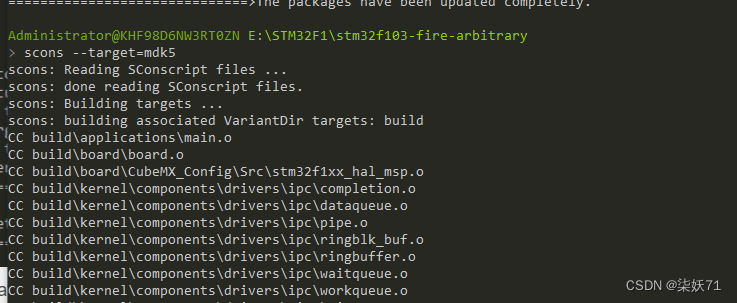
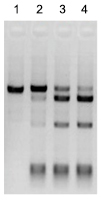


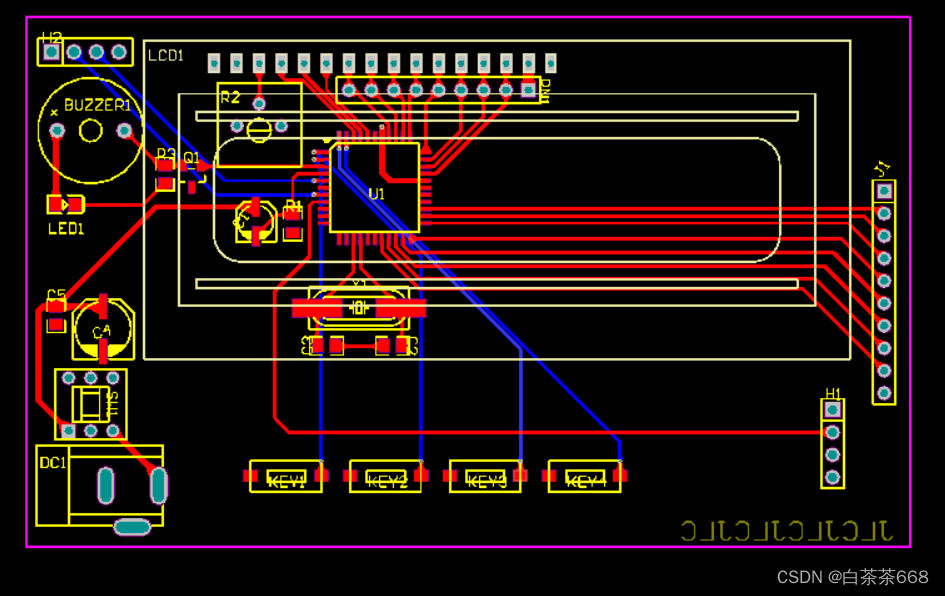



![[附源码]计算机毕业设计JAVA电子交易平台](https://img-blog.csdnimg.cn/1e88698e42ac47a9912dbbbece689417.png)

